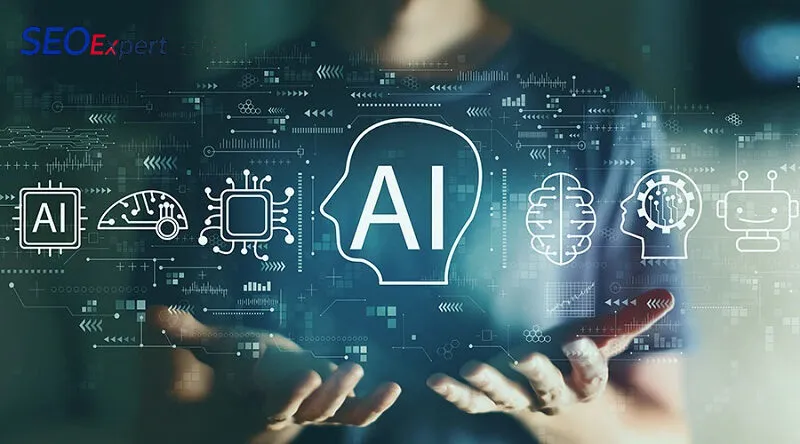In today’s fast-evolving technological landscape, the role of an AI Training Specialist has become pivotal in shaping intelligent systems across industries. From chatbots to self-driving vehicles and recommendation engines, the performance of AI systems relies heavily on the work of these specialists. As businesses integrate artificial intelligence (AI) into their operations, the demand for professionals who can effectively train AI models has skyrocketed.
In this in-depth guide, we’ll explore the responsibilities, skills, tools, and future outlook for AI Training Specialists, and how this career interrelates with other digital professions like that of a Seoexpert.
What Does an AI Training Specialist Do?

An AI Training Specialist is responsible for the preparation, labeling, and management of data used to train artificial intelligence models. Their primary goal is to ensure that machine learning (ML) algorithms learn accurately and efficiently from the data provided. Here are the core tasks they manage:
- Data Annotation & Labeling: Tagging images, text, audio, or video data so AI models can recognize and learn from patterns.
- Dataset Curation: Collecting, cleaning, and verifying high-quality datasets that are balanced and relevant.
- Model Training Supervision: Monitoring how AI systems learn from data, identifying bias or errors, and making adjustments as needed.
- Performance Evaluation: Using metrics and validation techniques to evaluate the accuracy of trained AI models.
For example, an AI Training Specialist working on a self-driving car model would label road signs, pedestrians, and traffic signals in thousands of images so that the AI can recognize them in real time. In contrast, one working in natural language processing (NLP) might tag sentiment in customer reviews to train a sentiment analysis model.
These specialists often work in collaboration with data scientists, ML engineers, and even Seoexperts when AI is applied in digital marketing contexts like automated content creation or search intent analysis.
Essential Skills and Tools for AI Training Specialists
Being an AI Training Specialist demands a mix of technical expertise and domain knowledge. Unlike developers who build algorithms, training specialists work closely with data to make it meaningful and usable for those algorithms. Key skills include:
1. Technical Skills
- Understanding of AI and ML Fundamentals: While not always coding experts, AI Training Specialists must understand the basics of how models work to train them effectively.
- Familiarity with Labeling Tools: Tools like Labelbox, Supervisely, V7, and Amazon SageMaker Ground Truth are commonly used.
- Knowledge of Annotation Standards: Following industry-specific labeling guidelines is essential, especially in sectors like healthcare or autonomous vehicles.
2. Analytical & Detail-Oriented Thinking
Since even small annotation mistakes can lead to significant model failures, attention to detail is critical. Specialists must scrutinize data meticulously to ensure it accurately reflects real-world patterns.
3. Domain-Specific Knowledge
In specialized fields such as legal AI, medical imaging, or e-commerce, knowledge of the domain helps in producing relevant and accurate data annotations.
4. Collaboration Tools
AI Training Specialists frequently work in teams and need to coordinate using platforms like JIRA, Trello, or Git-based environments, ensuring proper documentation and versioning of datasets.
A strong overlap often exists with the field of search engine optimization. For example, Seoexperts may need AI-trained tools to automate keyword classification, analyze SERP patterns, or categorize search intents. In such cases, AI Training Specialists provide the annotated data that powers these SEO tools.
We are currently hiring a talented SEO Specialist with a strong understanding of the Vietnamese language to join our dynamic marketing team. The ideal candidate will have proven experience in search engine optimization, keyword strategy, data analysis, and improving website rankings—especially within the Vietnamese market. You will work closely with both the content and technical teams to ensure all on-site elements are search engine-friendly and culturally relevant to Vietnamese audiences. A deep knowledge of Vietnamese SEO trends, local search behaviors, and language-specific nuances is a must. If you are passionate about Digital Marketing, possess logical thinking, creativity, and stay updated with the latest SEO practices, apply now and help us grow our presence in Vietnam and beyond.
Why AI Training Specialists Are Vital to AI Project Success
The effectiveness of any AI system hinges on the quality of its training data. As the saying goes, “Garbage in, garbage out”—if the data is flawed or biased, the AI system will replicate those flaws at scale.
Eliminating Bias and Ensuring Diversity
AI Training Specialists play a crucial role in identifying and correcting bias in datasets. For example, in facial recognition systems, lack of diversity in training images has led to problematic misidentification. Specialists must ensure that datasets include a wide representation of scenarios, demographics, and variables.
Improving Model Accuracy
Accurate annotations allow models to make fewer errors, which is especially important in high-stakes fields like medical diagnostics or financial fraud detection. AI Training Specialists often work hand-in-hand with QA teams to evaluate model outcomes and refine the training dataset accordingly.
Scalability and Automation
Once a well-labeled dataset is prepared, AI Training Specialists may help scale the process using semi-automated annotation methods or synthetic data generation. Their role becomes critical as projects move from prototype to production-level deployments.
Cross-Functional Collaboration
The work of an AI Training Specialist does not occur in a silo. They often collaborate with Seoexperts, UX designers, product managers, and domain experts to ensure the AI systems are not only technically sound but also aligned with business objectives.

AI Training and SEO: The Intersection of Human and Machine Intelligence
As digital marketing increasingly embraces automation, Seoexperts have begun to rely on AI-driven tools to analyze keyword trends, generate content, and optimize technical SEO. These tools are only as good as the AI models behind them—and those models, in turn, depend on the annotated data provided by AI Training Specialists.
Examples of AI-Supported SEO Applications
- Intent Classification: Determining whether a search query is informational, transactional, or navigational.
- Content Generation: Training AI models to write SEO-optimized meta descriptions or blog intros based on structured prompts.
- SERP Analysis: Training models to detect patterns in search engine results pages, which helps Seoexperts refine their strategies.
These use cases highlight the synergy between AI Training and SEO. Accurate labeling of queries and web content allows for better keyword targeting, improved user experience, and more relevant search results. Without the groundwork laid by AI Training Specialists, these advancements would not be possible.
We are looking for an experienced SEO Specialist fluent in Vietnamese to work remotely with our creative and dynamic marketing team. The ideal candidate will have a solid background in search engine optimization, keyword research, data analysis, and improving website rankings on Google, especially for the Vietnamese market.
The Future of AI Training: Trends and Career Outlook
The need for AI Training Specialists is expected to grow rapidly in the coming years. According to market forecasts, the global AI training data market is projected to reach over $6 billion by 2030, reflecting the increasing reliance on machine learning across sectors.
Career Opportunities
AI Training Specialists can work in various industries, including:
- Healthcare: Annotating medical imaging and patient records.
- Retail: Training recommendation engines and customer behavior models.
- Finance: Helping fraud detection algorithms improve accuracy.
- Autonomous Vehicles: Labeling video and sensor data for object recognition.
As the complexity of AI applications increases, so does the need for nuanced, high-quality data. Those with experience in data science, linguistics, computer vision, or even SEO will find this career path both intellectually rewarding and financially lucrative.

Integration with Generative AI
Generative AI models like GPT-4 or DALL·E also rely on massive datasets for training. AI Training Specialists help in curating these datasets, setting ethical boundaries, and maintaining quality control. Their input ensures that these models serve users responsibly—whether it’s generating search-optimized content for a Seoexpert or assisting in real-time customer support.
Conclusion
The role of an AI Training Specialist is foundational in building robust, ethical, and high-performing AI systems. Their work influences everything from product recommendations to autonomous navigation and SEO tools. As industries continue to embrace AI, these specialists will be at the forefront of ensuring that machines learn the right things in the right way.
For digital professionals like a Seoexpert, understanding and collaborating with AI Training Specialists can unlock new levels of innovation and efficiency in search engine strategies. The future of AI isn’t just about algorithms—it’s about the quality of training they receive, and the humans behind that training.
